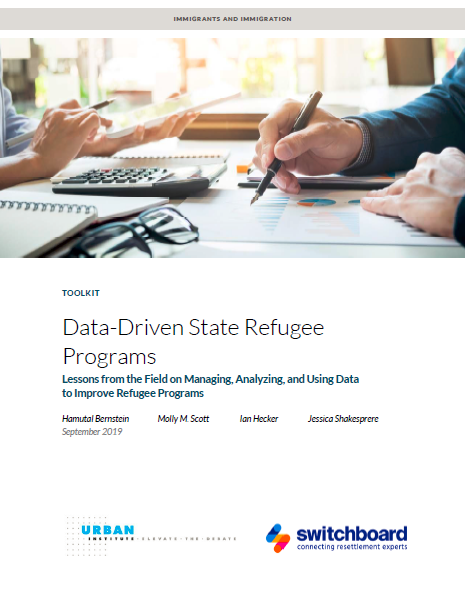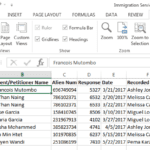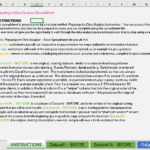Switchboard contracted with the Urban Institute for the development of this toolkit.
Data and evidence can play a critical role in program management if those data are designed, collected, and analyzed with programming goals in mind and grounded in the reality of how programs work. As state refugee coordinators (SRCs) manage and coordinate refugee services, they face a range of challenges and constraints related to data collection, analysis, and use. They are responsible for complying with reporting requirements to federal agencies such as the Office of Refugee Resettlement (ORR), and doing so can be challenging given complex and fragmented data systems, limited staff time and capacity, and evolving reporting requirements.
This toolkit provides guidelines and ideas for SRCs who want to improve their use of data in thoughtful and innovative ways. It offers lessons from consultations conducted with SRCs and their colleagues in summer 2019. The toolkit is organized as follows:
- Leveraging ORR Reporting Data provides some basic ideas that require minimal time and resources but could benefit states. It shares concrete suggestions on how to leverage existing ORR reporting data, specifically from forms ORR-5 and ORR- 6, to inform program management and improvement.
- Building Client-Centered Data Systems shares lessons learned and key insights from different states’ efforts to build and develop data infrastructure. This infrastructure takes the form of integrated data systems that can streamline the process of collecting data on people served and facilitate subsequent reports and analyses.
- Innovative Data Efforts highlights some examples of innovative data collection and analysis in different states. The goal of this section to inspire efforts at further data collection, often in collaboration with outside research partners.







